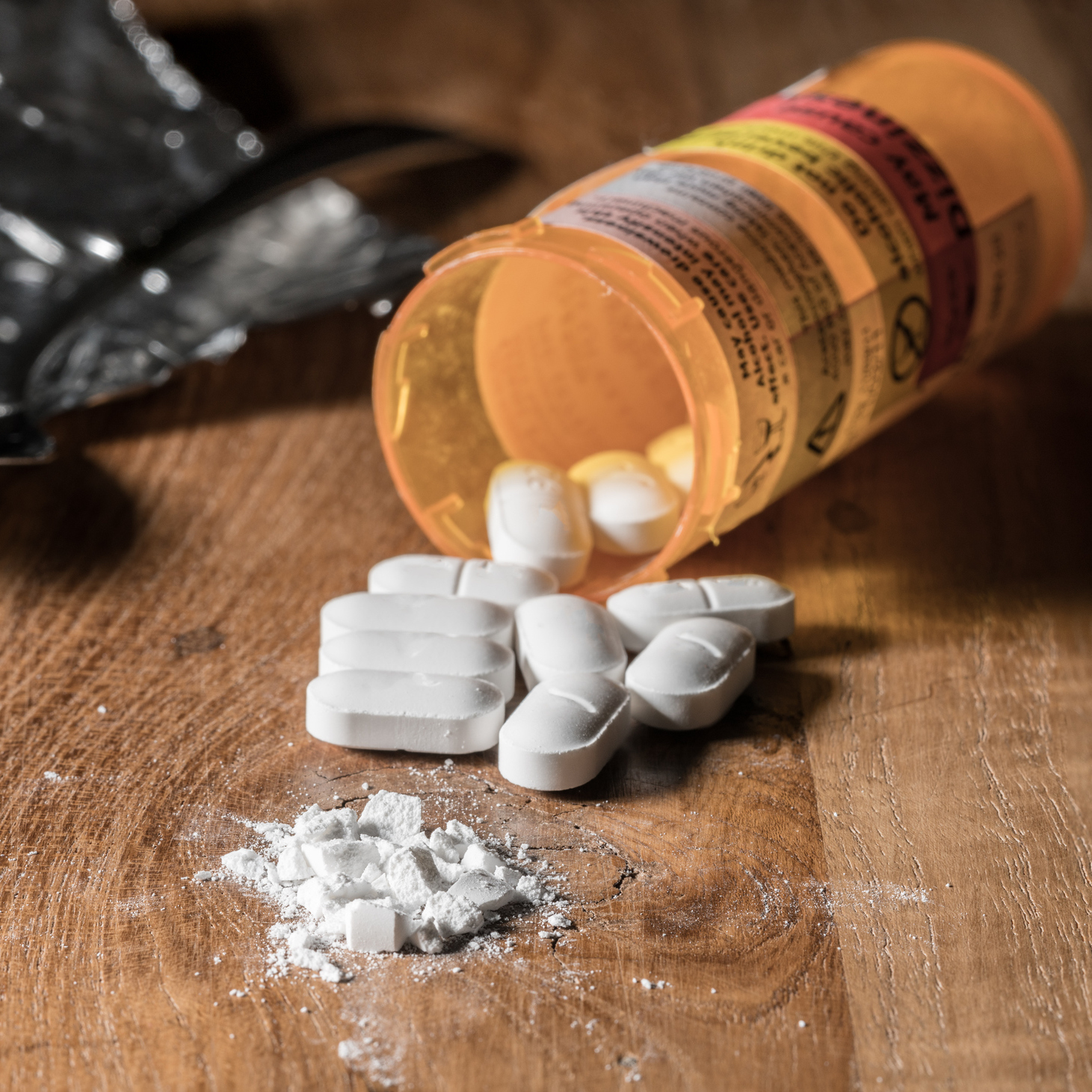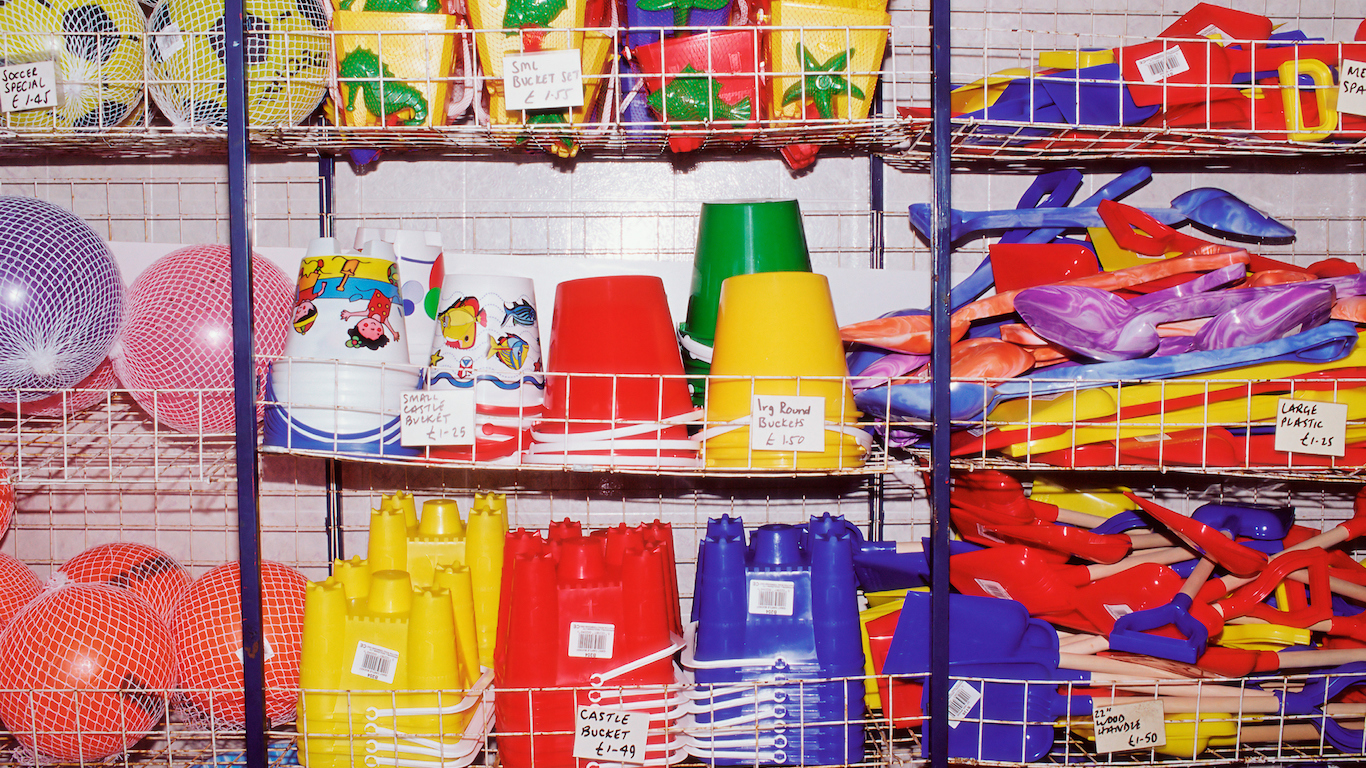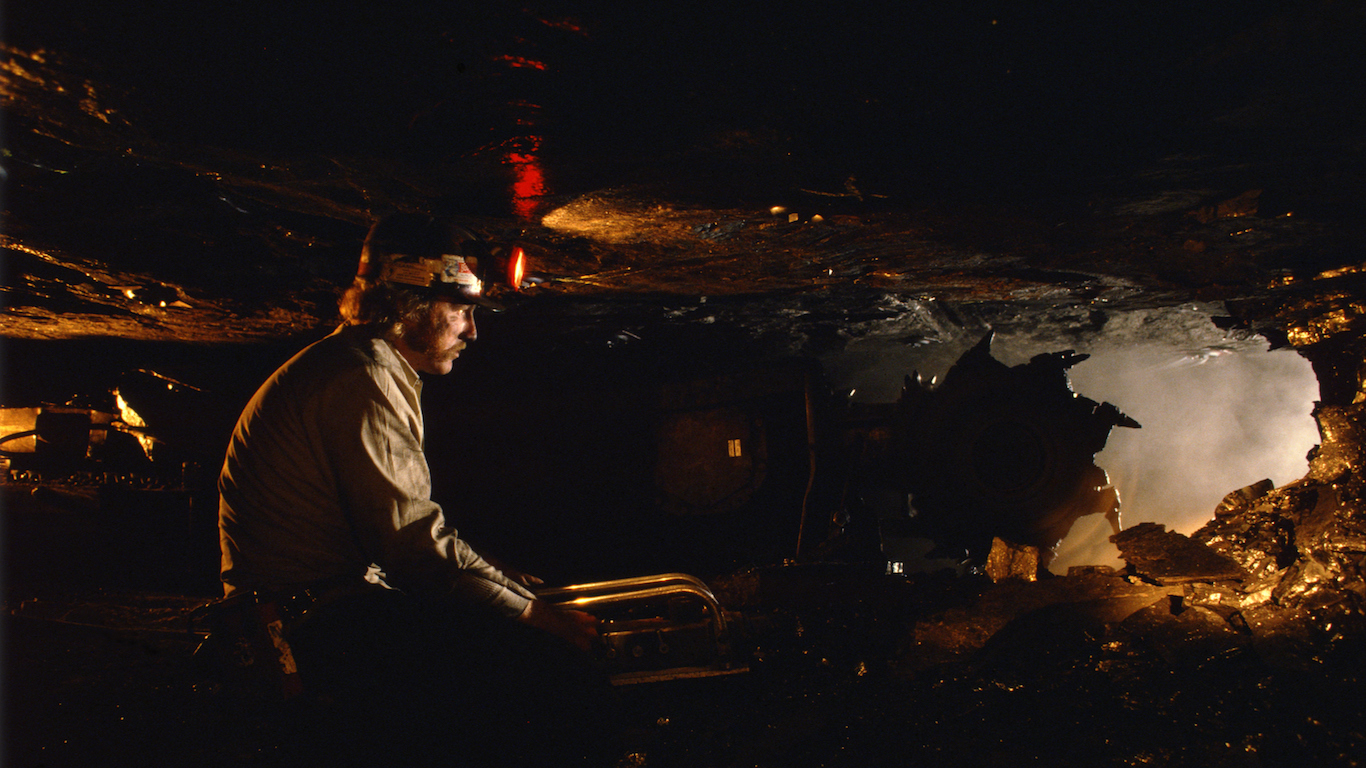Special Report
Industries Suffering From the Most Substance Abuse

Published:
Last Updated:

Substance abuse can be harmful to personal mental and physical well-being. It also takes a heavy toll on the economy. Alcohol and illicit drug abuse, including the misuse of prescription drugs such as opioids, costs an estimated $442 billion annually in lost productivity and health care costs.
While no industry is immune to the effects of alcohol and drug abuse, certain industries are more likely to be affected than others.
24/7 Wall St. reviewed alcohol abuse, illicit drug use, and substance use disorder — or SUD — data from the Substance Abuse and Mental Health Services Administration to identify the industries where substance abuse is most common. Across 19 major industries, the share of full-time workers who report monthly excessive alcohol use ranges from 4.4% to 17.5%. Illicit drug use across these industries ranges from 4.3% to 19.1%.
Click here to see the industries struggling the most with substance abuse.
Click here to see our detailed findings and methodology.

19. Educational services
> Past month heavy alcohol use: 4.7%
> Past month illicit drug use: 4.8%
> Past year substance use disorder: 5.5%
> Pct. male: 31.6%
[in-text-ad]

18. Health care and social assistance
> Past month heavy alcohol use: 4.4%
> Past month illicit drug use: 5.5%
> Past year substance use disorder: 5.7%
> Pct. male: 21.3%

17. Public administration
> Past month heavy alcohol use: 6.6%
> Past month illicit drug use: 4.3%
> Past year substance use disorder: 7.2%
> Pct. male: 54.9%

16. Finance and insurance
> Past month heavy alcohol use: 7.4%
> Past month illicit drug use: 6.5%
> Past year substance use disorder: 9.4%
> Pct. male: 44.9%
[in-text-ad-2]

15. Transportation and warehousing
> Past month heavy alcohol use: 8.8%
> Past month illicit drug use: 5.9%
> Past year substance use disorder: 9.1%
> Pct. male: 76.2%

14. Professional, scientific, and technical services
> Past month heavy alcohol use: 7.7%
> Past month illicit drug use: 9.0%
> Past year substance use disorder: 8.8%
> Pct. male: 57.8%
[in-text-ad]

13. Agriculture, forestry, fishing, and hunting
> Past month heavy alcohol use: 9.4%
> Past month illicit drug use: 5.7%
> Past year substance use disorder: 10.5%
> Pct. male: 74.7%

12. Manufacturing
> Past month heavy alcohol use: 9.7%
> Past month illicit drug use: 7.4%
> Past year substance use disorder: 9.3%
> Pct. male: 71.1%

11. Utilities
> Past month heavy alcohol use: 10.3%
> Past month illicit drug use: 6.1%
> Past year substance use disorder: 11.5%
> Pct. male: 78.0%
[in-text-ad-2]

10. Wholesale trade
> Past month heavy alcohol use: 10.2%
> Past month illicit drug use: 7.8%
> Past year substance use disorder: 10.4%
> Pct. male: 70.5%

9. Real estate, rental, and leasing
> Past month heavy alcohol use: 8.5%
> Past month illicit drug use: 10.9%
> Past year substance use disorder: 10%
> Pct. male: 54.4%
[in-text-ad]

8. Information
> Past month heavy alcohol use: 8.1%
> Past month illicit drug use: 11.7%
> Past year substance use disorder: 9.8%
> Pct. male: 59.4%

7. Other services (except public admin.)
> Past month heavy alcohol use: 8.5%
> Past month illicit drug use: 11.2%
> Past year substance use disorder: 10.1%
> Pct. male: 47.8%

6. Retail trade
> Past month heavy alcohol use: 9.0%
> Past month illicit drug use: 10.3%
> Past year substance use disorder: 10.5%
> Pct. male: 52.2%
[in-text-ad-2]

5. Management
> Past month heavy alcohol use: 9.9%
> Past month illicit drug use: 12.1%
> Past year substance use disorder: 11.4%
> Pct. male: N/A

4. Mining
> Past month heavy alcohol use: 17.5%
> Past month illicit drug use: 5.0%
> Past year substance use disorder: 11.8%
> Pct. male: 86.6%
[in-text-ad]

3. Arts, entertainment, and recreation
> Past month heavy alcohol use: 11.5%
> Past month illicit drug use: 13.7%
> Past year substance use disorder: 12.9%
> Pct. male: 54.8%

2. Construction
> Past month heavy alcohol use: 16.5%
> Past month illicit drug use: 11.6%
> Past year substance use disorder: 14.3%
> Pct. male: 90.9%

1. Accommodations and food services
> Past month heavy alcohol use: 11.8%
> Past month illicit drug use: 19.1%
> Past year substance use disorder: 16.9%
> Pct. male: 47.7%
Detailed Findings
Workers in the accommodations and food service industry are the most likely have a substance use disorder — defined as the use of one or more substances that leads to established standards of abuse or dependence. According to the results of a National Surveys on Drug Use and Health questionnaire, some 16.9% of industry workers are impaired physically, mentally, or socially because of substance abuse. The accommodations and food services industry also has the highest rate of illicit drug use, with an estimated 19.1% of full-time workers using illicit drugs such as hashish, cocaine, inhalants, heroin, or prescription drugs for nonmedical purposes, on a monthly basis.
Meanwhile, the mining industry has the highest alcohol abuse rate, with 17.5% of full-time industry workers drinking five or more drinks on the same occasion five or more days a month.
On the other end of the spectrum, the educational services industry has the lowest incidence of SUD, with only 5.5% of full-time workers reporting some form of abuse disorder within the last year. Further, only 4.3% of public administration workers took illicit drugs in past month, and 4.4% of health care and social services workers reported heavy alcohol use within the last month, each the lowest share of any of the 19 industries surveyed.
When all measures of substance abuse are ranked with a weighted index, accommodations and food services ranks as the most heavily abusing industry, followed by construction and arts, entertainment, and recreation. Educational services is the industry struggling the least with substance abuse, followed by health care and public administration.
While the are several exceptions, substance abuse appears to be more common in male-dominated industries. Of the five industries with the highest substance abuse rates, four are predominantly male. Two of those industries — construction and mining — are the most male dominated in the U.S., with workforces comprised of 90.9% and 86.6% men, respectively.
Workers in Industries which have relatively high risk of injury or death — such as construction or mining — also are more likely to abuse substances.
Whether or not substance abuse is partially triggered by stress tied to work-related safety hazards is unclear. However, substance abuse may be contributing to serious injuries on the job. According to a survey conducted by the National Safety Council, 15% of employers attribute a workplace injury or a near-miss to on-the-job prescription opioid painkiller use. An increasing number of employers in jobs involving heavy machinery are effectively being forced to fund costly drug testing programs to reduce misuse of prescription medication and consequent workplace injury.
Methodology
To identify the industries struggling the most with substance abuse, 24/7 Wall St. reviewed data from the National Surveys on Drug Use and Health from the Substance Abuse and Mental Health Services Administration, a division of the Department of Health and Human Services. The overall industry ranking is based on a weighted index of the share of adults age 18 to 64 working full-time in a given industry who report heavy alcohol or illicit drug use in the month prior to the survey, or a substance use disorder in the past year. Data used in the ranking are based on five-year averages from 2008 through 2012. Gender composition by industry in 2016 are from the Bureau of Labor Statistics’ Current Population Survey.
Heavy alcohol use is defined as drinking five or more drinks on the same occasion on five or more days in a 30-day period. Illicit drug use encompases the nonmedical use of cocaine, inhalants, hallucinogens, heroin, or prescription drugs, among others. Despite its current legal status in several states, marijuana is also considered an illicit drug. The presence of a substance use disorder is established by a NSDUH questionnaire. The questions assess symptoms of dependence or abuse based on the criteria established by the Diagnostic and Statistical Manual of Mental Disorders.
Retirement planning doesn’t have to feel overwhelming. The key is finding expert guidance—and SmartAsset’s simple quiz makes it easier than ever for you to connect with a vetted financial advisor.
Here’s how it works:
Why wait? Start building the retirement you’ve always dreamed of. Click here to get started today!
Thank you for reading! Have some feedback for us?
Contact the 24/7 Wall St. editorial team.